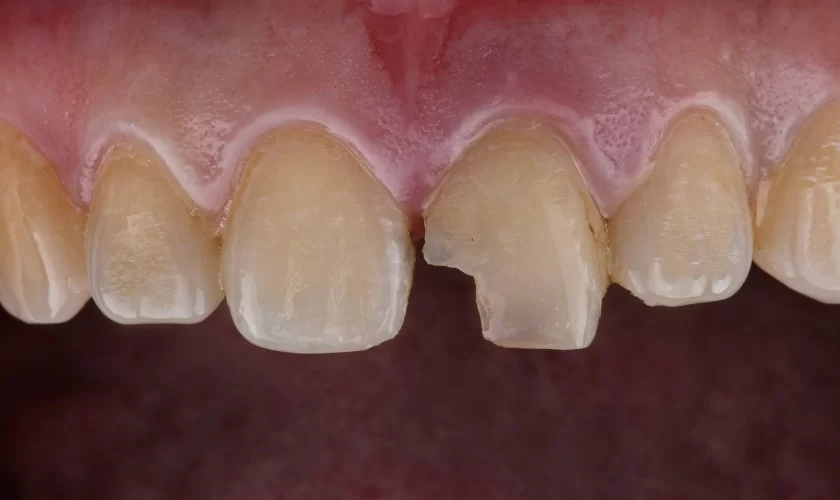 :
:- Understanding a Chipped Tooth
- Immediate Steps to Take
- Treatment Options for a Chipped Tooth
- Real-Life Case Studies
- Preventing Chipped Teeth
Understanding a Chipped Tooth
A chipped tooth can happen unexpectedly, whether from biting something hard, an accident, or even natural wear over time. The severity of the chip can range from a minor edge being worn down to a significant break. It's essential to recognize that while a chipped tooth might not cause immediate pain, it can lead to more serious dental issues if left untreated. The exposed area of the tooth might also be more susceptible to bacteria, leading to infection or further damage.
If you’ve chipped a tooth, it's important to act quickly to avoid additional complications. While it might seem like a minor issue, understanding how to handle the situation and seeking the right treatment can prevent further problems down the road. Here's a guide on how to deal with a chipped tooth effectively.
Immediate Steps to Take
When you first notice that you have chipped a tooth, taking the right steps immediately can help minimize damage and discomfort. Here are the key things to do:
1. Rinse with Warm Water
After chipping your tooth, rinse your mouth with warm water to remove any debris. This will help prevent infection and reduce the risk of bacteria getting into the exposed area.
2. Apply a Cold Compress
If there’s any swelling or discomfort, apply a cold compress to the outside of your cheek near the damaged tooth. This will help reduce swelling and ease any pain.
3. Protect the Tooth
If the chip has exposed a sensitive part of your tooth, consider covering the area with dental wax or sugar-free gum to protect it from further damage or irritation. Avoid chewing on the side of the chip until you can seek dental care.
Treatment Options for a Chipped Tooth
Once you've taken the initial steps, it’s time to consider the treatment options available to restore your chipped tooth. The best course of action depends on the severity of the chip and the location of the damage.
1. Dental Bonding
For minor chips, dental bonding is often a quick and effective solution. In this procedure, a tooth-colored resin is applied to the damaged area and then hardened using a special light. Dental bonding can restore the shape of the tooth, making it look as good as new. It's a relatively simple procedure that can often be completed in a single visit.
2. Dental Veneers
If the chip is larger or more noticeable, a dental veneer might be a better option. Veneers are thin shells of porcelain that are custom-made to fit over the front of your teeth. They are highly durable and can restore the appearance of a chipped tooth, providing a natural look that blends seamlessly with your other teeth.
3. Crowns
For more severe chips, especially if the tooth has been cracked down to the nerve, a dental crown might be necessary. Crowns cover the entire tooth, protecting it from further damage while restoring its functionality. Crowns can be made from porcelain, ceramic, or metal, depending on your needs and the location of the tooth.
4. Root Canal Treatment
If the chip has exposed the pulp of the tooth and caused significant damage, a root canal treatment may be required. This procedure involves removing the infected or damaged pulp, cleaning the area, and sealing it. A crown is usually placed afterward to protect the tooth and restore its strength.
Real-Life Case Studies
Consider the case of Emily, who accidentally chipped her front tooth while eating hard candy. She noticed the chip immediately and felt a sharp sensitivity whenever she drank cold water. After visiting her dentist, Emily opted for dental bonding. The procedure was quick and cost-effective, and her tooth looked natural again. Within a few hours, she was back to her normal routine, enjoying her favorite cold drinks without discomfort.
Another example is David, who chipped a back tooth during a basketball game. The damage was more severe, and the tooth was painful. After an evaluation, his dentist recommended a crown to restore the tooth’s strength and appearance. The crown provided long-term durability and helped David regain full functionality without any future complications.
Preventing Chipped Teeth
While accidents can happen, there are steps you can take to reduce the likelihood of chipping a tooth:
1. Avoid Chewing Hard Objects
Resist the urge to chew on hard objects such as ice, pens, or hard candies. These can put excessive pressure on your teeth and cause them to chip.
2. Wear a Mouthguard
If you participate in contact sports, always wear a mouthguard. It provides a protective layer around your teeth, reducing the risk of injury.
3. Maintain Good Oral Hygiene
Taking care of your teeth with regular brushing and flossing ensures that your enamel stays strong. Regular dental checkups also allow your dentist to spot potential issues early before they result in chips or cracks.
If you've experienced a chipped tooth or are concerned about your oral health, visit Dentistry Toothtruth for expert advice and professional dental services. We offer high-quality products and treatments to help restore your smile.







 Kathleen Thieu, DDS, MS4.0 (16 review)
Kathleen Thieu, DDS, MS4.0 (16 review) EZ Dental Specialty Group3.0 (20 review)
EZ Dental Specialty Group3.0 (20 review) Tender Smiles 4 Kids4.0 (450 review)
Tender Smiles 4 Kids4.0 (450 review) Summit Dental Specialists5.0 (13 review)
Summit Dental Specialists5.0 (13 review) Dracut Dental Group5.0 (268 review)
Dracut Dental Group5.0 (268 review) Nashua Cosmetic & Restorative Dentistry, PLLC4.0 (51 review)
Nashua Cosmetic & Restorative Dentistry, PLLC4.0 (51 review) The Importance of Oral Health Education During Pregnancy for a Healthy Pregnancy
The Importance of Oral Health Education During Pregnancy for a Healthy Pregnancy Best Tips for Brushing Your Teeth Properly for Healthy Gums: Essential Techniques for Oral Health
Best Tips for Brushing Your Teeth Properly for Healthy Gums: Essential Techniques for Oral Health Why Skipping Dental Checkups Can Lead to Bigger Oral Health Problems
Why Skipping Dental Checkups Can Lead to Bigger Oral Health Problems Advantages of Porcelain Dental Restorations
Advantages of Porcelain Dental Restorations How Can Diabetes Cause Tooth and Gum Problems? Preventing and Managing Oral Health Issues
How Can Diabetes Cause Tooth and Gum Problems? Preventing and Managing Oral Health Issues Healthy Habits for Promoting Good Oral Health and Hygiene: Tips for a Healthy Smile
Healthy Habits for Promoting Good Oral Health and Hygiene: Tips for a Healthy Smile